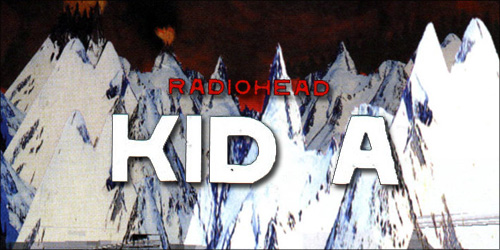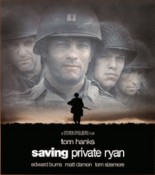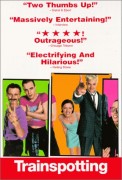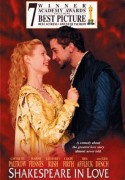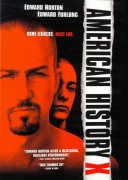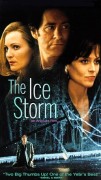Pitchfork Music Top 200
Rolling Stone
NME
A.V.Club
Sputnik Music
Saturday, 18 February 2012
Friday, 17 February 2012
Top 30 Films 90s (TotalFilm.com)
View their entire list at their page.
Labels:
Culture,
English Teaching
Top 25 Films 90s (From AboutFilm.com)
You can see the list at their site.
It's difficult to say which is Martin Scorsese’s finest work, Goodfellas or Taxi Driver. Though both examine the seamy underbelly of life in and around the Big Apple, Goodfellas replaces Taxi Driver’s quiet brooding and slow burn with explosive kinetics. Henry Hill (Liotta) is a petty man with an over-romanticized view of his own life. “As far back as I can remember, I always wanted to be a gangster,” he narrates in the film’s opening. Scorsese’s ambulatory cameras trail along as Hill describes how he falls in with a local mob boss (Sorvino) and two small-time con men (De Niro and Pesci), marries the feisty girl (Bracco), and hits the jackpot, living out his dreams despite serving a stint in jail. Alas, everything soon comes crashing down, yet through it all, Hill is never able to step outside his myopic, self-deluded perspective.
Notwithstanding the ambitious narrative and active pace, Scorsese does not rush the story. He has never directed with more assurance, expertly blending narration, period music, and his own dynamic tableaux to create an energetic, darkly funny, and unforgettable portrait of life among the Mob's bottom feeders. As the talkative, volatile Tommy DeVito ("You think I'm funny? How am I funny? What the fuck is so funny about me?!?"), Pesci earned a Best Supporting Actor Oscar™, but the Academy overlooked Goodfellas in favor of Dances With Wolves in other categories, decisions that look remarkably unenlightened in hindsight. –Carlo
| Academy Awards™ Best Supporting Actor (Pesci). Nominations: Best Picture, Best Director, Best Supporting Actress (Bracco), Best Adapted Screenplay, Best Film Editing Other Major AwardsBritish Academy Awards: Best Film, Best Direction, Best Adapted Screenplay, Best Editing, Best Costume Design. Los Angeles Film Critics Association: Best Picture, Best Director, Best Supporting Actor (Pesci), Best Supporting Actress (Bracco), Best Cinematography. National Board of Review: Best Supporting Actor (Pesci) National Society of Film Critics: Best Film, Best Director New York Film Critics Circle: Best Film, Best Director, Best Actor (De Niro). Venice Film Festival: Best Director. Named one of the 100 Greatest American Movies by the American Film Institute. |
 | #2 Schindler's List (1993) Starring Liam Neeson, Ben Kingsley, Ralph Fiennes, Caroline Goodal, Jonathan Sagall, and Embeth Davidtz. Written by Steven Zaillian based on the book by Thomas Keneally. Directed by Steven Spielberg. |
| ||||||||||||||
Haunting and profoundly moving, Schindler's List is Steven Spielberg's greatest triumph. Spielberg’s opening montage sketches a portrait of Oskar Schindler, a peerless and unscrupulous manipulator who sees World War II as a business opportunity. With Jews stripped of their right to own property, he invests their money on their behalf, uses their labor to manufacture war goods, and keeps a chunk of the earnings. As the Jews’ plight worsens, Schindler feels unexpected pangs of conscience and applies his skills to a nobler purpose: saving those lives he once treated as profitable commodities.
Unlike the glossy boyish fantasies that make up most of Spielberg's filmography, List is a work of unsensational realism, resonating with truth from start to finish. The movie may be shot in black and white, but Spielberg's treatment of the subject is far from it. Diving into the particulars, Spielberg creates fully formed, multidimensional characters without shying from the humanity of his villains and the shortcomings of his heroes. The actors ably assist this effort–in particular Liam Neeson at his most assured and Ralph Fiennes’ shockingly soulful portrayal of a monster, Commandant Amon Goeth. List is not another movie lecture about the horrors of the Holocaust. What is ultimately most memorable about List is not the tragedy of the lives lost or even the number of people Schindler saved, but how such an imperfect man could have done something so perfect. –Carlo
| Academy Awards™ Best Picture, Best Director, Best Adapted Screenplay, Best Cinematography, Best Film Editing, Best Art Direction/Set Decoration, Best Score. Nominations: Best Actor (Neeson); Best Supporting Actor (Fiennes), Best Costume Design, Best Makeup, Best Sound. Other Major AwardsBritish Academy Awards: Best Film, Best Direction, Best Supporting Actor (Fiennes), Best Adapted Screenplay, Best Cinematography, Best Editing, Best Score. Directors Guild of America: Outstanding Directorial Achievement Los Angeles Film Critics Association: Best Picture, Best Cinematography, Best Production Design. Golden Globes: Best Picture-Drama, Best Director, Best Screenplay. London Critics Circle: Film of the Year, Director of the Year, British Actor of the Year (Fiennes). National Board of Review: Best English Language Picture. National Society of Film Critics: Best Film, Best Director, Best Supporting Actor (Fiennes), Best Cinematography. New York Film Critics Circle: Best Film, Best Supporting Actor (Fiennes), Best Cinematography. Writers Guild of America: Best Adapted Screenplay. Named one of the 100 Greatest American Movies by the American Film Institute. |
 | #3 Miller's Crossing (1990) Starring Gabriel Byrne, Albert Finney, Marcia Gay Harden, John Turturro, and Jon Polito. Written by Ethan and Joel Coen. Directed by Joel Coen. |
| ||||||||||||||
Set in a late-1920s/early-1930s alternate universe where colors are muted, drinks are stiff, and the primary struggles of gangsters are moral, Miller's Crossing is a world unto itself. It is a movie like they used to make–only more so, informed by gangster conventions and Western archetypes, sporting a postmodern cynicism surrounding a marshmallow heart.
The Coen Brothers' mobster masterpiece is neither like Coppola's operatic Godfather series nor Scorsese's GoodFellas’ (#1) rock and roll. It is pure jazz underscored with a haunting Irish air. Stylish, complex, and mournful, this is one of those rare films that not only bears repeat viewings, but demands them.
The intricate story of a ruling mob boss' right-hand man is a labyrinthine grift on the audience, filled with double crosses, backroom scheming, and rubouts both rhapsodically orchestrated and brutally nonchalant. It is only once the crackling dialogue and sumptuously threadbare surroundings settle into one's ears and eyes that the story's simple core–loyalty, honor, and the hard pain and cold comfort of doing what's right–becomes clear.
The Coen Brothers' facile, slyly witty language, hyperreal characterization, artful storytelling, and reverence for films and times past make every trip to Miller's Crossing a film lover's delight, and provide something new for even the longtime habitué to discover. –Alison
| Awards Casting Society of America: nominated for Best Casting for Feature Film-Drama.San Sebastian International Film Festival: Best Director |
 | #4 Titanic (1997) Starring: Leonardo DiCaprio, Kate Winslet, Billy Zane, Gloria Stuart, Kathy Bates, Frances Fisher, and Bill Paxton. Written and Directed by James Cameron. |
| ||||||||||||||
Think back before the hype. Remember being transported to the strange undersea world where TITANIC rests. Think of how you were drawn in, first by the mysterious remembrances of an ancient woman who, through the magic of technical wizardry, then became the luminous Kate Winslet on a bustling dock next to a living recreation of the grandest man-made tragedy-waiting-to-happen in modern times. Recall the wonder of discovering, as Rose discovered, that life is to be lived, not by what society or family expects, but by what one feels within oneself.
James Cameron's story took its time unfolding, sketching with broad strokes to help us identify with the characters and painting with fine details to help us love the doomed ship. The simple love story allowed for the many small losses and large themes of this tragedy to come through. Titanic was a truly monumental achievement in filmmaking.
Epics aren’t to everyone’s taste. The hyperbole and overexposure caused many to grouse that the Big Boat Movie should never have been made. Perhaps it would be a good thing if it hadn’t. Then we'd all get to go back to TITANIC for the first time. – Alison
| Academy Awards™ Best Picture, Best Director, Best Cinematography, Best Film Editing, Best Dramatic Score, Best Song ("My Heart Will Go On"), Best Art Direction/Set Decoration, Best Costume Design, Best Sound, Best Sound Effects Editing, Best Visual Effects. Nominations: Best Actress (Winslet), Best Supporting Actress (Stuart), Best Makeup. Other Major Awards American Society of Cinematographers: Outstanding Achievement in Cinematography. Broadcast Film Critics Association: Best Director. Directors Guild of America: Outstanding Directorial Achievement. Golden Globes: Best Picture (drama), Best Director, Best Score, Best Song ("My Heart Will Go On"). Los Angeles Film Critics Association: Best Production Design. People's Choice Awards: Favorite Motion Picture. Screen Actors Guild: Best Supporting Actress (tie) (Stuart). Highest grossing film of all time, both globally and in the United States. |
 | #5 The Silence of the Lambs (1991) Starring Jodie Foster, Anthony Hopkins, Scott Glenn, Ted Levine, Anthony Heald, and Brooke Smith. Written by Ted Tally based on the novel by Thomas Harris. Directed by Jonathan Demme. |
| ||||||||||||||
The standard against which all other thrillers are judged, The Silence of the Lambs is no common follow-the-clues, get-the-bad-guy movie. Rather, Lambs is an intensely psychological film, exploring the psyche of both killer and hunter, and the guide on this journey is Dr. Hannibal "The Cannibal" Lecter (Hopkins).
Few will ever forget Lecter's first appearance. Young FBI Agent Clarice Starling (Foster), walks a gauntlet of criminally insane prisoners to interview him because he may hold the key to solving a series of gruesome murders. When she arrives at the last cell, she finds Lecter waiting for her, the harsh overhead light casting demonic shadows across his face, hollowing his deep-set eyes. He stands motionless, as if locked in the same position for hours, rigid but coiled to strike even from behind the thick plexiglass. Will he will help Starling catch her prey, or is she the prey herself?
The essential conflict of Lambs is not the search for the serial killer on the loose, but Starling vs. Lecter, the serial killer already behind bars. That conflict sets Lambs above all other serial killer thrillers, and its feminist dimensions provide extra depth. In a man’s world, Starling is surrounded by predators. Yet she will prevail in the end, and she will do so without the help of any man. Not by choice, not because she has anything to prove, but because she must. –Carlo
| Academy Awards™Best Picture, Best Director, Best Actor (Hopkins), Best Actress (Foster), Best Adapted Screenplay. Nominations: Best Film Editing, Best Sound. Other Major Awards Berlin International Film Festival: Best Director. British Academy Awards: Best Actor (Hopkins), Best Actress (Foster). Directors Guild of America: Outstanding Directorial Achievement.Golden Globes: Best Actress (Foster) National Board of Review: Best English Language Picture, Best Director, Best Supporting Actor (Hopkins).New York Film Critics: Best Picture, Best Director, Best Actor (Hopkins), Best Actress (Foster). People's Choice Awards: Favorite Dramatic Motion Picture. Writers Guild of America: Best Adapted Screenplay.Named one of the 100 Greatest American Movies by the American Film Institute. |
 | #6 Pulp Fiction (1994) Starring: Samuel L. Jackson, John Travolta, Bruce Willis, Uma Thurman, Ving Rhames, and other assorted bad-asses. Written by Quentin Tarantino and Roger Avary. Directed by Quentin Tarantino. |
| ||||||||||||||
Pulp Fiction was a shot of adrenaline felt around the world when it debuted at Cannes in 1994. Quentin Tarantino mined the riches of cinema past (no Godard was left un-homaged) to construct a dazzling prototype for cinema today. It’s only been six years, but the film has already lodged a series of quotes and scenes in the cinephile’s lexicon. The briefcase. The Royale with Cheese. The foot massage. The watch. The twist at Jackrabbit Slim’s. Each is an indelible image associated with the film, rapidly mythologized and canonized.
Pulp Fiction deserves its regard as a modern-day classic. On a superficial level, it is the supremely entertaining vanguard of Neo Noir. Its non-linear storyline, piquant dialogue, and sudden bursts of violence keep you engaged. Though Tarantino has borrowed heavily from earlier sources, Pulp Fiction feels brand new, even after a dozen viewings. More rewardingly, the film transcends its pulp origins with its mystic and religious overtones. Jules' speech in the last scene about “looking at all this shit from wrong angle” and wanting to live his life as a righteous man carries more weight than any sermon I’ve ever attended. In the end, Pulp Fiction is about no less than our concern for our souls, our complacency in life, and the path toward redemption. It's structured so deftly across the interlinking stories that it’s more poetic than pretentious. –Jeff
| Academy Awards™Best Original Screenplay. Nominations: Best Picture, Best Director, Best Actor (Travolta), Best Supporting Actor (Jackson), Best Supporting Actress (Thurman), Best Film Editing. Other Major Awards British Academy Awards: Best Supporting Actor (Jackson), Best Original Screenplay.Cannes Film Festival: Golden Palm.Golden Globes: Best Screenplay. Independent Spirit Awards: Best Feature, Best Director, Best Male Lead (Jackson), Best Screenplay. London Critics Circle: Actor of the Year (Travolta), Screenwriter of the Year. Los Angeles Film Critics: Best Picture, Best Director, Best Actor (Travolta), Best Screenplay. National Board of Review: Best Picture, Best Director. National Society of Film Critics: Best Picture, Best Director, Best Screenplay. Named one of the 100 Greatest American Movies by the American Film Institute. |
 | #7 Dead Man Walking (1995) Starring Sean Penn, Susan Sarandon, Robert Prosky, Raymond J. Barry, and R. Lee Ermey. Written by Tim Robbins based on the book by Helen Prejean. Directed by Tim Robbins. |
| ||||||||||||||
To understand what makes Dead Man Walking so remarkable, imagine if another fine actor, Tom Hanks, had been cast in the lead role. We'd be instantly predisposed to sympathize with his death-row inmate character. With the casting of the mercurial Sean Penn as Matthew Poncelet, we must overcome our initial distrust and prejudice of the character to recognize the humanity that lies beneath. Such is the journey undertaken by Sister Helen (Susan Surandon), who exemplifies Christian models of charity and love. Dead Man Walking never missteps into mawkish melodrama or strident didacticism. It's not an issue movie, but a philosophy movie.
Sean Penn and Susan Sarandon give the two best performances by any actors in any movie in the 1990s. In Penn's eyes, facial expressions, and posture, we see a man struggling to save his soul. His pride has the upper hand at first, but his heart's void is steadily filled. Sarandon's Sister Helen is the epitome of compassion. Though at first dutiful and curious, she becomes the forgiving angel that Poncelet needs. She even gets through to the father of one of the victims, opening his mind to life. It's a stunning testament to the power that resides in love, forgiveness, and a respect for humanity–all of which shine through every frame of Dead Man Walking. –Jeff
| Academy Awards™ Best Actress (Sarandon). Nominations: Best Actor (Penn), Best Director, Best Song ("Dead Man Walking"). Other Major Awards Berlin Film Festival: Jury Prize, Best Actor (Penn). Independent Spirit Awards: Best Male Lead (Penn). Screen Actors Guild: Best Actor (Penn), Best Actress (Sarandon). |
 | #8 L.A. Confidential (1997) Starring Guy Pearce, Russell Crowe, Kevin Spacey, Kim Basinger, Danny DeVito, and James Cromwell. Written by Brian Helgeland and Curtis Hanson based on the novel by James Ellroy. Directed by Curtis Hanson. |
| ||||||||||||||
A question: How do you mesh an ensemble cast of established and rising stars seamlessly in an Oscar-friendly epic, without the preening and speechifying that normally attaches to such projects? The answer: Um, not sure, actually. This is why I don't make movies, and Curtis Hanson does. L.A. Confidential is that rarest of birds, a stylized masterpiece that stretches the audience for each of its 136 minutes, refusing to dumb down its multiple plot lines, killing off lead characters when least expected, and trusting in the viewer's willingness to follow along and piece things together. Well, it does until the last scene anyway, when all is explained in great detail just in case–but that's okay, as it does get a bit confusing along the way.
Spacey, Crowe, Basinger, and Pearce all give strong performances, but the dynamics between them are what define the film. It may take a second viewing to appreciate the subtlety of the pair-ups from scene to scene: Spacey-Crowe in one, Crowe-Pearce in the next, Pearce-Spacey after that, with Basinger going toe-to-toe along the way. One complaint: Danny DeVito is in this film. Otherwise, it's just about perfect. –Kris
| Academy Awards™ Best Supporting Actress (Basinger), Best Adapted Screenplay. Nominations: Best Picture, Best Director, Best Cinematography, Best Art Direction/Set Decoration, Best Film Editing, Best Score, Best Sound. Other Major AwardsBritish Academy Awards: Best Editing, Best Sound. Broadcast Film Critics Association: Best Picture, Best Adapted Screenplay. Golden Globes: Best Supporting Actress (Basinger). London Critics Circle: Film of the Year, Director of the Year, Supporting Actor of the Year (Spacey), Screenwriter of the Year. Los Angeles Film Critics Association: Best Picture, Best Director, Best Screenplay, Best Cinematography. National Board of Review: Best Picture, Best Director. National Society of Film Critics: Best Picture, Best Director, Best Screenplay. New York Film Critics: Best Picture, Best Director, Best Screenplay. Screen Actors Guild: Best Supporting Actress (tie) (Basinger). Toronto International Film Festival: Metro Media Award (tie). page 2
Roscoe Lee Browne puts it best in his narration, "This is a tale of an unprejudiced heart, and how it changed our valley forever." The valley itself is an enchanting place, in no easily identifiable geographic location or era. The farm, run by the lanky, stoic Arthur Hoggett (Cromwell) and his portly, cheerful wife (Szubanski), has a strict hierarchy and order. Babe, a talking pig, upsets the status quo when he demonstrates his unwillingness to accept his destiny–as the Christmas ham–with an uncanny ability to herd sheep alongside the dogs. Hoggett, in his own quiet way, rebelliously challenges convention by not only recognizing Babe's talent, but nourishing it. This is a superbly crafted film, a magical blend of technology and heart. The art direction, cinematography, acting, editing, special effects, writing, and musical score swirl together to form a delightful concoction. One of the most pleasant surprises of the decade, Babe deserved every ounce of its praise, including its Oscar™ nomination. It has deservedly become an enduring, beloved favorite of children and adults alike. –Jen
With Unforgiven, Clint Eastwood has managed to not only break Western genre bounds, but also the bounds of the anti-Western, a genre he helped create with Italian director Sergio Leone. William Munny is a man with a name–and a reputation to match. There is no mystery to this man as he rides into the western town of Big Whisky with clear intentions–to kill two men in exchange for money. The title of the film is quite apt. Eastwood paints the Old West in a deservedly unforgiving light. He forgoes the majestic musical scores that always accompany panoramic western vistas. His shoot-outs are slow, messy, and agonizing. Nobody gets what they deserve. Unforgiven completely shatters Western mythology, stripping it of all the glamour, all the glory, and all the romance. The whores don't have hearts of gold. The sheriff keeps the peace through brutality and intimidation. And the gunfighting protagonist is a mean, vicious murderer. With Unforgiven, Eastwood delivers his message loud and clear; that everything we've ever seen before about the Old West is bullshit. Even his own movies. –Jen
If there is a film from 1999 that can be described as "visionary," it is Fight Club. It struck a chord with the wired generation (a chord plucked earlier in the year by The Matrix, #15), tangled as we are in the pursuit of money and things we don't really need. Fight Club puts us in the head of its nameless Narrator and takes us on a journey of self-discovery, punctuated with equal parts brutality and hilarity. The greatness of the film lies in its ability to tantalizingly stoke our rage and disillusionment before delivering nihilism to its proper resting place. Fight Club is a love story and a coming-of-age story, as much as it is an identity crisis, an anti-consumerist rant, a critique of machismo and men's movements, or a satire of cultism. Tyler Durden, the avatar of our Narrator's bifurcated personality, is no match for Marla, his savior. She is the alarm that awakens the Narrator from his somnambulance and self-flagellation. Fight Club downloads its wake-up call into our brains, and dares us to create something new for ourselves. –Jeff
Gods and Monsters is a small film made great by McKellen's measured portrayal of Frankenstein director James Whale. McKellen eases into the role, drawing out his character's wit in early scenes, bringing his tortured conflicts to the surface later on, and resisting melodrama throughout. Fraser and Redgrave both give outstanding supporting performances, and the film's direction and pacing are effortlessly understated. Performances aside, the film is most memorable for its less conspicuous moments, some of which are a delight. One favorite: a spontaneous photo session involving Whale and his stars from The Bride of Frankenstein, with Boris Karloff's newborn serving as a distraction. "Coochy coo," the former Mrs. Frankenstein utters politely but coolly in the baby's direction. The humor in these small, ‘present-day' moments (actually the 1950s) balances a series of dramatic flashbacks centered around Whales' involvement in the first World War. While the device allowing for these flashbacks (a stroke that renders Whale unable to control memory flow) may be a bit contrived, the blurring of Whale's past and present is increasingly haunting as the film heads toward its tragic conclusion. –Kris
No fictional sports movie has a story this good. Three hours culled from four years in the lives of two boys in inner-city Chicago, edited masterfully to provide a narrative and thematic drive, Hoop Dreams is the most frank representation of the life and aspirations of the urban poor in America. It is a critique of America, capitalism, the family (particularly fathers), and sports. It examines racism, poverty, drugs, and education. The film compels you to think about the gargantuan struggles some people face that we more privileged do not, which struggles are self-inflicted, and which are engendered by an uncaring, inefficient, and occasionally hostile system. It also makes us aware of the role of chance in our lives–a freak injury or an unpaid school bill can have unforeseen consequences down the road. Hoop Dreams is not a downer, though. Resilience and faculty overcome heavy obstacles to provide a sense of hope. Dreams may be elusive, but love can keep us afloat. –Jeff
Beauty and the Beast is by far the best of Disney's most recent animated features. It balances cute, cartoony humor with a well-written story so well that children and adults will find it equally satisfying. Belle is a heroine ahead of her time. The brown-eyed, brunette beauty is an avid reader with dreams of a bigger, more adventurous life than her provincial town can offer. Little does she know that her dreams are about to come true. The Beast (he is never mentioned by name) is the quintessential romantic hero. Even in his monstrous form, he's magnetically attractive. A sensitive, tortured brute, he appeals to those of us who long to heal another soul with the power of our love. He meets Belle with his hair bristling and with an awesome, roaring voice (which I still can't believe came out of Robbie Benson), and slowly becomes an insecure, needy sweetheart. We all know, intellectually, that we don't have the power to change any other individual but ourselves. But in our hearts, and in our fantasies, we yearn to make a difference, to forever alter our beloved's life. By just being herself, Belle literally transforms the Beast, and I don't know anybody who wouldn't find that romantic. –Jen
The Matrix is a perfect encapsulation of fin-de-siécle zeitgeist at the doorstep of our new millennium. Blending comix/animé visuals, balletic kung-fu acrobatics, cyberpunk paranoia laced with pop culture references of days gone by, and mind-bending special effects that may soon render it passé, The Matrix captures our communal thoughtscape circa the late 20th century. Fittingly, that's what The Matrix is about–the collective dreamworld we inhabit and who has dominion over it. Kicking off the theme that would be further explored in other, more "serious" films of 1999, such as Fight Club (#11) and American Beauty (#21), The Matrix exhorts us to take control of our lives. With its superhero parable of The One, it addresses the level to which we've allowed machines to remove us from that which is real. The Matrix reminds us that we are "the ones" with the power over our lives; all we have to do is exercise it. Oh, yeah... It also kicks serious ass. –Alison
Fargo is not–as its opening title states–based on a true story, but that doesn't mean it's not about the truth. Tapping directly into the infinite wellspring of human folly, the Coen Brothers find both humor and pathos in this tale of one man's desperate attempt to cloak his mistakes and failures by arranging a "harmless" kidnapping of his wife. His blunders and miscalculations are compounded by those of the thugs he hires, creating a snowball effect that results in a slew of unintended carnage. Though its tone is often lightened and enriched by the Coen's affection for mundane detail and local color, Fargo is as suspenseful and as thematically bleak as its stunningly atmospheric cinematography and score. The film's ray of hope is embodied in Marge Gunderson (McDormand), one of modern cinema's most awesomely crafted characters. Fargo is often chided for mocking the midwesterners who populate its story, but Marge puts the lie to that criticism. She's a true rarity: a character who demonstrates that simplicity is not stupidity, decency is not naiveté, and that sophistication is not a prerequisite for wisdom. Equal parts dark humor and sincere lament, Fargo tells the truth about the blinding qualities of fear and greed, and about the absurdly predictable frailty and ineptitude of human beings. Yet somehow, it manages to conclude on a sublimely life-affirming note. Conjuring a universe that is at once singular and familiar, Fargo is that rarest of breeds: a film that genuinely merits the word unique. It is, quite simply, superb. –Dana
| ||||||||||||||||||||||||||||||||||||||||||||||||||||||||||||||||||||||||||||||||||||||||||||||||||||||||||||||||||||||||||||||||||||||||||||||||||||||||||||||||||||||||||||||||||||||||||||||||||||||||||||||||||||||||||||||||||||||||||||||||||||||||||||||||||||||||||||||||||||||||||||||||||||||||||||||||||
Labels:
Culture,
English Teaching
Subscribe to:
Comments (Atom)
